The tick population in America has been increasing at an alarming rate. They come as they please and make a home wherever they land. With many negative consequences of these unwanted pests, it’s time to take back control of your yard with Tick Shield, Mosquito Shield of South Shore, Cape Cod & South Coast’s tick control service.
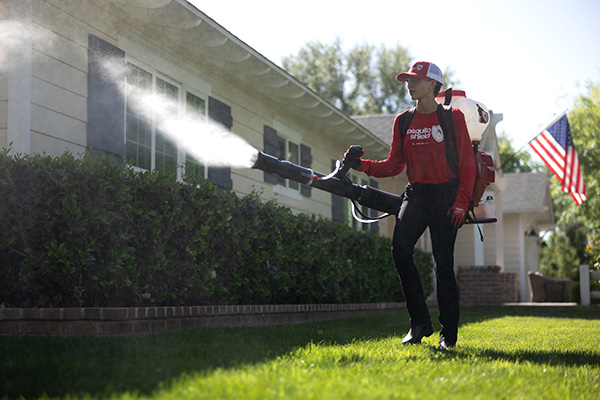
Our treatment instantly targets and eliminates ticks in Cape Cod’s tick-prone environments for immediate relief.

By addressing tick hotspots commonly found in Cape Cod, we help reduce the tick population and prevent future infestations.

Our proprietary formula is specially designed to not only kill ticks but repels others from your property allowing you, your kids and pets to enjoy your property more.
Tick control and preventions are more crucial than ever to limit your family and pets from the dangers of tick-borne diseases. Ticks are resilient pests that can survive in various environments, making your yard a prime target. Without proper control measures, these tiny but dangerous insects can spread rapidly, threatening your outdoor spaces and peace of mind.
Ticks thrive in many areas of your yard, including:

Ticks love dense, shaded areas where they can easily latch onto passing animals or people.
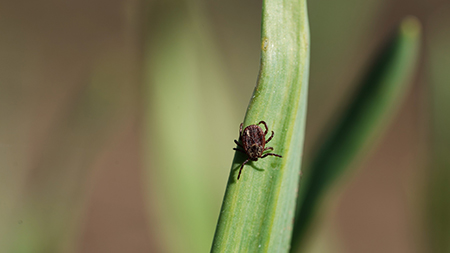
These spots provide perfect hiding places, allowing ticks to remain undetected while waiting for their next host.
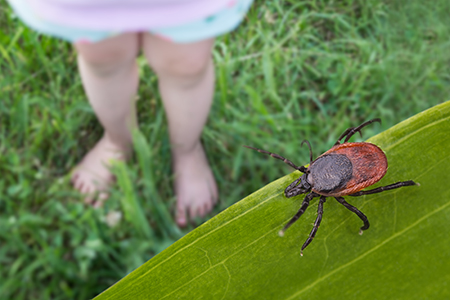
Ticks cling to low-hanging branches and shrubbery, making it easy to latch onto you or your pets as you pass by.
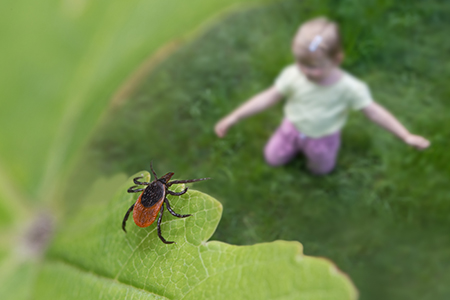
Even in seemingly harmless piles of leaves, ticks can hide and survive for months, waiting for the right conditions to emerge.
Ticks are small, blood-feeding parasites commonly found throughout Massachusetts. They pose a risk to both people and animals by potentially spreading diseases through their bites.
When ticks feed, they attach their specialized mouthparts to the skin of a host—whether it’s a person, pet, or wild animal. During this process, ticks release saliva that may carry harmful germs, increasing the risk of disease transmission.
Spending time outdoors, especially in wooded areas, tall grass, or brush, means taking extra precautions. Always check yourself, your family, and your pets for ticks after outdoor activities, particularly during the warmer months of spring, summer, and early fall.
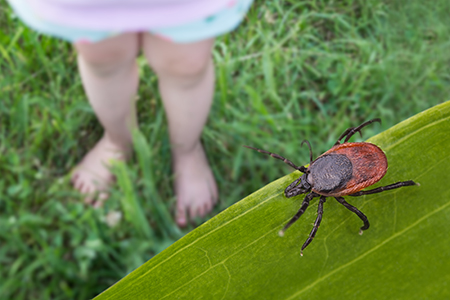
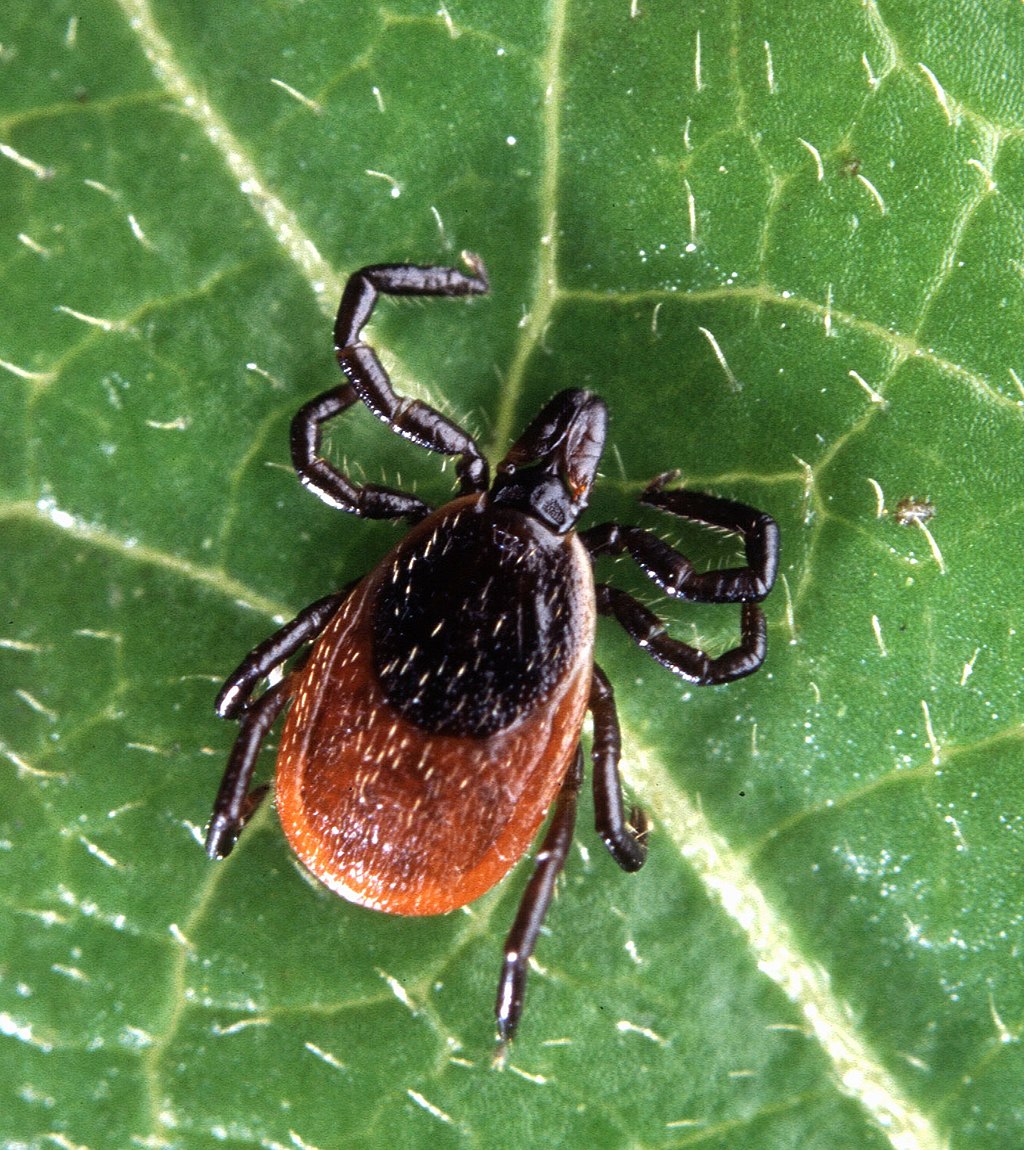
Identification: Small, reddish-brown body with black legs; females have a darker, black-colored dorsal shield. Nymphs are tiny and can be difficult to see.
Habitat: Prefers wooded areas, leaf litter, tall grasses, and brushy vegetation, often found in areas with abundant deer and rodents.
Behavior: Active year-round but most prevalent in spring, summer, and fall; they attach to hosts (including humans) and are the primary vector for Lyme disease, babesiosis, and anaplasmosis.
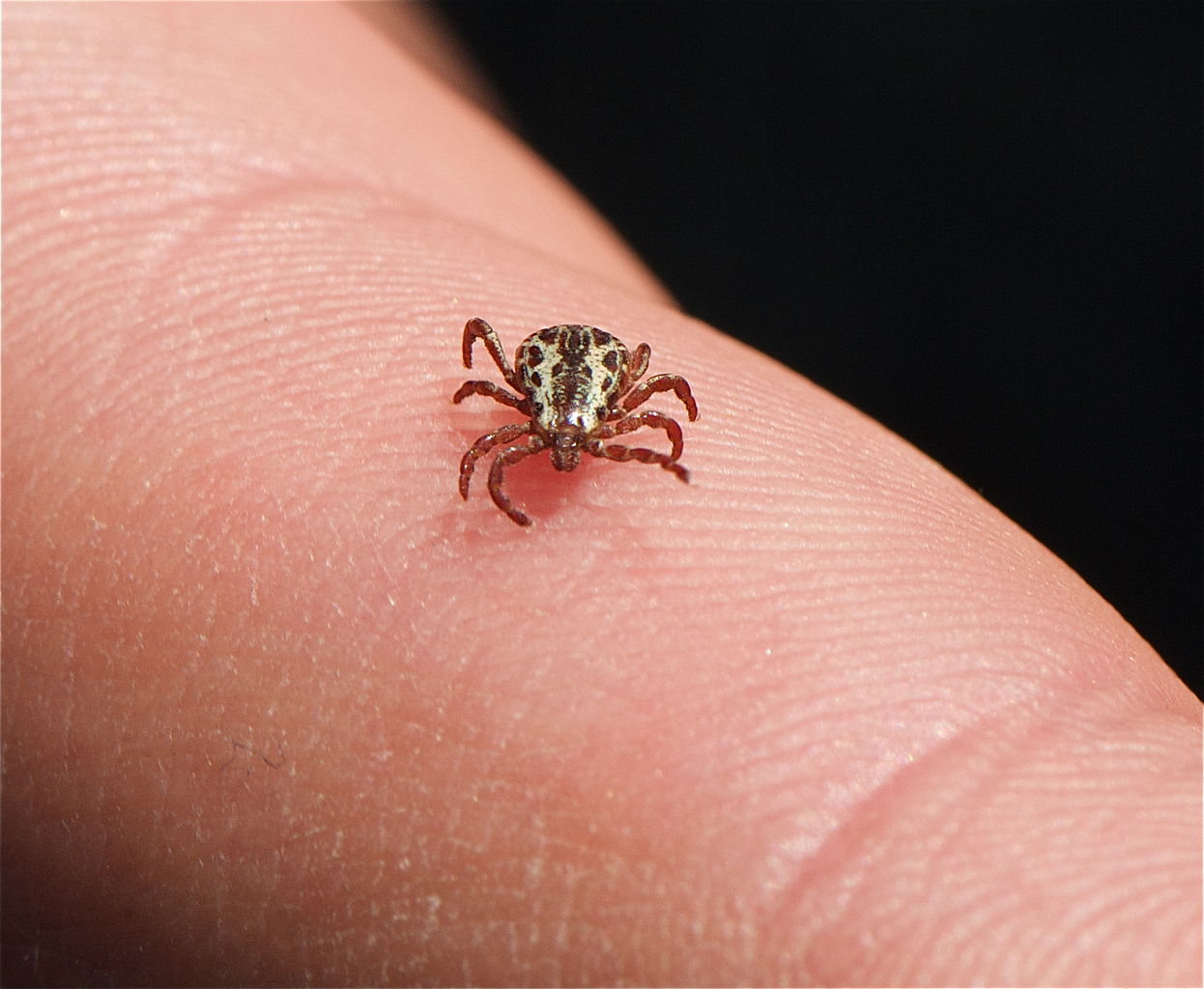
Identification: Larger than the deer tick, with a dark brown body and distinctive white or grayish markings on its back.
Habitat: Found in grassy fields, along trails, and in open areas with little tree cover, commonly near roadsides and recreational areas.
Behavior: More active in warmer months; prefers dogs and larger mammals but will bite humans. It is a vector for Rocky Mountain spotted fever and tularemia.
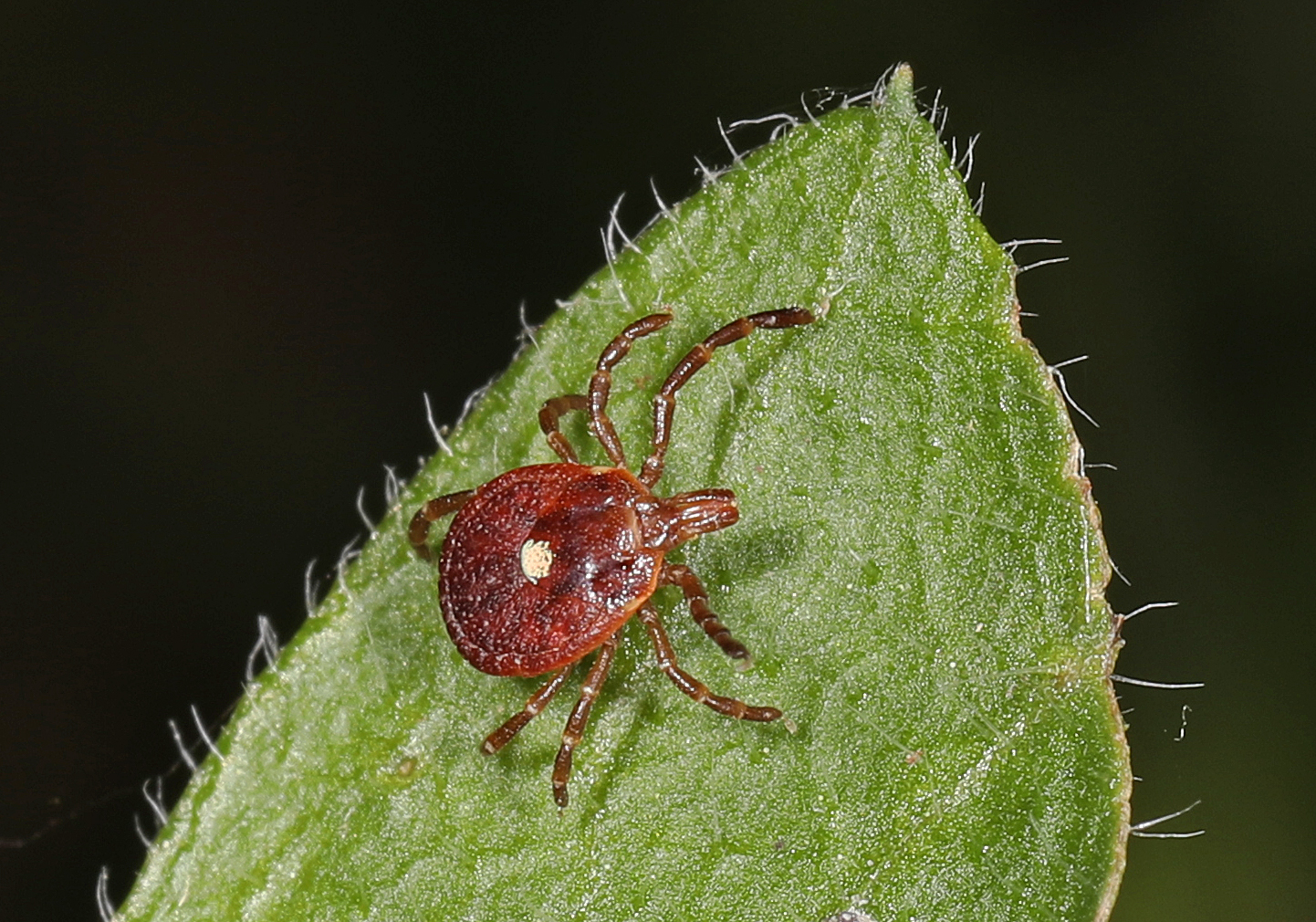
Identification: Medium-sized reddish-brown tick; females have a distinct white dot (or "lone star") on their back. Habitat: Found in wooded areas, dense underbrush, and along trails, often in areas with abundant wildlife, especially deer. Behavior: Aggressive and active hunters that actively seek out hosts; known for transmitting ehrlichiosis, tularemia, and can potentially cause red meat allergies (alpha-gal syndrome).
Our tick control solutions are designed for Cape Cod’s unique environment, offering fast, effective protection for your outdoor spaces. We guarantee satisfaction with a money-back promise and schedule your first visit within five business days. You’ll receive regular updates before and after each treatment, so you’re always in the loop. Learn more about our key benefits below:

